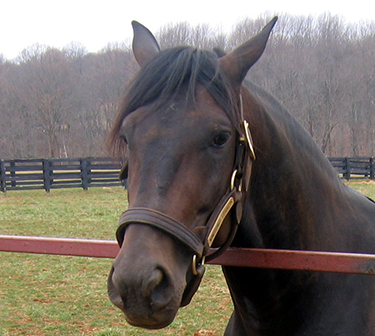IMMEDIATE RELEASE Contact:
January 10, 2019
www.nj.gov/agriculture
PO Box 330
Trenton, New Jersey 08625-0330
Jeff Wolfe
P: (609) 633-2954
C: (609) 433-1785
E: jeff.wolfe@ag.nj.gov
(TRENTON) – A Cape May County horse was found positive for rabies. The horse, which was on a farm in a rural part of the county, was being treated at a referral facility and was tested for rabies because it showed neurologic symptoms. The 20-month-old colt's vaccination status is unknown and is therefore being treated as unvaccinated. The exposed surviving horses, all previously vaccinated against rabies, have received a booster vaccination and are under observation for 45 days.
The New Jersey Department of Agriculture, Division of Animal Health encourages everyone to speak with their veterinarians about vaccinating their animals against rabies, if they are not already doing so. Vaccination of livestock and other domestic animals is the most effective strategy to protect animals against this disease and minimize the impact it may have on you and your animals. If unvaccinated livestock are suspected of having direct contact with a rabid animal or are suspected of contracting rabies, it may be necessary for the entire premises to be placed under quarantine.
Rabies is endemic in New Jersey but is often detected in bats, raccoons, foxes, skunks, cats and, to a lesser extent, domestic livestock. Transmission is almost always from the bite of a rabid animal. The virus is shed in the saliva several days before the onset of clinical signs. The disease is fatal once clinical signs appear. Suspect cases should be handled with care and isolated from other animals.
Rabid animals of all species usually exhibit typical signs of central nervous system disturbance with owners first noticing their animal “doesn’t seem right.” As the illness progresses, nervous system impairment becomes more obvious. Affected animals may or may not show signs of aggression. Livestock often develops the “dumb” form of the disease which consists of slight depression, walking in circles, eating non-edible items, “star gazing,” or not acting normally.
Potential cases of rabies in livestock, like other diseases affecting the neurological system, must be reported to the State Veterinarian at (609) 671-6400 within 48 hours of diagnosis. The Animal Health Diagnostic Lab is available to assist with all your testing needs including pathology services. For inquiries, contact the NJ Animal Health Diagnostic Laboratory. Phone: (609) 406-6999; Fax: (609) 671-6414; web: http://jerseyvetlab.nj.gov.
To report suspicion of rabies in species other than livestock, contact your local Health Department or the New Jersey Department of Health at (609)-826-4872.
###
To learn more about the New Jersey Department of Agriculture, find us on Facebook at www.facebook.com/NJDeptofAgriculture and www.facebook.com/JerseyFreshOfficial or Twitter @NJDA and @JerseyFreshNJDA.



